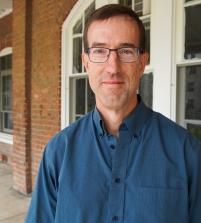Religion and Scholarship — Brian Britt
While national attention focused on Alabama and a granite monument of the Ten Commandments, a recent Washington state court case exposed government confusion over the academic study of religion
While national attention focused on Alabama and a granite monument of the Ten Commandments, a recent Washington state court case exposed government confusion over the academic study of religion. In Locke v. Davey, a student (Davey) at Northwest College, a fully accredited school affiliated with the Assemblies of God, was awarded a state Promise Scholarship only to learn that his declared major in pastoral ministries would prevent him from receiving it. This fall, the U.S. Supreme Court will decide whether to uphold the state's ruling.
Washington law currently prevents theology majors from receiving state scholarships ("[n]o aid shall be awarded to any student who is pursuing a degree in theology," Wash. Rev. Code §28B.10.814). The statute echoes the Washington Constitution (1889), which states that "No public money or property shall be appropriated for or applied to any religious worship, exercise or instruction, or the support of any religious establishment" (Article I, § 11, Washington Constitution).
The interesting problem here is not the free exercise of religion or government establishment of religion, but the state's unwillingness to distinguish the practice of religion from its study. Even for students intending religious careers, the study of religion or theology rarely resembles religious practice. In fact, students who consider themselves religious sometimes avoid religion courses, citing concerns of anti-religious bias. What's more, the study of biology or business ethics can be just as religious as theology, and just as useful for certain religious careers. As the dissenting judge in the state's appeal wrote in Locke v. Davey, "Whether Davey chooses to pursue a theology degree or a business management degree or any other degree," his education will be, in the words of his college's mission statement, "distinctively Christian in the evangelical sense." Even at a public institution like Virginia Tech, where I teach, students report incidents of science and business faculty who frame their courses according to narrow sectarian principles.
The key terms in the Washington case are "theology" and "instruction." Does theology refer to the rigorous discipline of "faith seeking understanding" once known as the "queen of the sciences"? Does "religious instruction" mean instruction about religion or instruction in religion? Theology is sometimes distinguished from religious studies by its explicit commitment to a religious community, but church-related schools (e.g., in the Catholic tradition) often use the term theology to describe what would be called "religion" or "religious studies" elsewhere. "Religious studies" or "religion" can just as often describe theological projects.
With provisions in thirty-seven states strictly preventing the use of state funding for religious purposes, some legal scholars attribute laws like Washington's to the legacy of the anti-Catholic Blaine amendments of the nineteenth century. A particular concern of the Washington law and those like it seems to be the purpose of the program of study: intended careers in ministry or religious education. But at most colleges and universities, a religion or theology major belongs to the liberal arts, along with philosophy and English. The American Academy of Religion, with over 9,000 members, states its mission as promoting "reflection upon and understanding of religious traditions, issues, questions, and values," not the training of church leaders.
Influenced by American law, religious studies departments once seemed determined to cleanse courses about religion from the taint of religion, but many critics now ask whether the "wall of separation" between church and state is even conceivable. While religious "bias" is often considered unavoidable even in secular departments, many church-related colleges fail to deliver on the promise of teaching a particular religious tradition.
Still, the American public and its lawmakers often consider higher education to be mere vocational training. They do not dispute the educational validity of theology majors, which are offered at accredited and mostly tax-exempt institutions, but they take exception to what these students might go on to do. According to the Legal Times (5/27/03), at least fourteen states specifically bar theology students from receiving state aid. It seems likely that the Supreme Court case will have implications for all of these state laws, though it remains to be seen whether issues of education and scholarship will receive the attention of the Justices.
The aftermath of September 11th has provided a grim boost to scholarship on religion, but the complexities of religion in higher education continue to elude the public. While the academic profession could strive for a clearer, more standardized vocabulary for their study of religion, following such principles as truth in advertising, Locke v. Davey will, in the meantime, give the Court an opportunity to recognize the complexity and ambiguity of religion and religious studies in America.
Author, Brian Britt, is Associate Professor and Director of Religious Studies in the Center for Interdisciplinary Studies at Virginia Tech.


